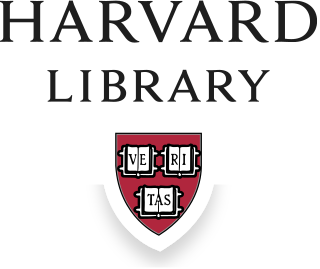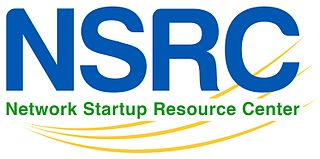Related Research Articles

Rita Frances Dove is an American poet and essayist. From 1993 to 1995, she served as Poet Laureate Consultant in Poetry to the Library of Congress. She is the first African American to have been appointed since the position was created by an act of Congress in 1986 from the previous "consultant in poetry" position (1937–86). Dove also received an appointment as "special consultant in poetry" for the Library of Congress's bicentennial year from 1999 to 2000. Dove is the second African American to receive the Pulitzer Prize for Poetry, in 1987, and she served as the Poet Laureate of Virginia from 2004 to 2006. Since 1989, she has been teaching at the University of Virginia in Charlottesville, where she held the chair of Commonwealth Professor of English from 1993 to 2020; as of 2020, she holds the chair of Henry Hoyns Professor of Creative Writing.

The University of Virginia School of Law is the law school of the University of Virginia, a public research university in Charlottesville, Virginia.

Harvard Library is the network of libraries and services at Harvard University, a private Ivy League university in Cambridge, Massachusetts. Harvard Library is the oldest library system in the United States and both the largest academic library and largest private library in the world. Its collection holds over 20 million volumes, 400 million manuscripts, 10 million photographs, and one million maps.
The American Council of Learned Societies (ACLS) is a private, nonprofit federation of 75 scholarly organizations in the humanities and related social sciences founded in 1919. It is best known for its fellowship competitions which provide a range of opportunities for scholars in the humanities and related social sciences at all career stages, from graduate students to distinguished professors to independent scholars, working with a number of disciplines and methodologies in the U.S. and abroad.
The Institute for Advanced Technology in the Humanities (IATH) is a research unit of the University of Virginia, USA. Its goal is to explore and develop information technology as a tool for scholarly humanities research. To that end, IATH provides Fellows with consulting, technical support, applications development, and networked publishing facilities. It cultivates partnerships and participates in humanities computing initiatives with libraries, publishers, information technology companies, scholarly organizations, and other groups residing at the intersection of computers and cultural heritage.
John Thomas Casteen III is an American educator. He served as president of the University of Connecticut from 1985 to 1990 and as Professor of English and president of the University of Virginia from 1990 through 2010.
Rare Book School (RBS) is an independent 501(c)(3) non-profit organization based at the University of Virginia. It supports the study of the history of books, manuscripts, and related objects. Each year, RBS offers about 30 five-day courses on these subjects. Most of the courses are offered at its headquarters in Charlottesville, Virginia but others are held in New York City, Washington, D.C., and Baltimore, Maryland. Its courses are intended for teaching academics, archivists, antiquarian booksellers, book collectors, conservators and bookbinders, rare book and special collections librarians, and others with an interest in book history.
The University of Virginia College of Arts & Sciences is the largest of the University of Virginia's ten schools. Consisting of both a graduate and an undergraduate program, the College comprises the liberal arts and humanities section of the University.
Henry L. Snyder was professor emeritus of history at the University of California, Riverside, and the former director of the Center for Bibliographical Studies and Research. He served as a co-director and the leader of the American English Short Title Catalogue team for more than 32 years.

James G. Neal is an American librarian, library administrator, and a prominent figure in American and international library associations. In 2022 President Joe Biden appointed him to the National Museum and Library Services Board which advises the agency on general policies with respect to the duties, powers, and authority of the Institute of Museum and Library Services relating to museum, library, and information services, as well as the annual selection of the National Medal for Museum and Library Service.
E-Science librarianship refers to a role for librarians in e-Science.

Nazarbayev University (NU) is an autonomous research university in Astana, Kazakhstan. It was founded by the former President of Kazakhstan Nursultan Nazarbayev in June 2010. It is an English-medium institution, with an international faculty and staff.
Charles J. Henry is President of the Council on Library and Information Resources (CLIR), located in Washington, D. C. Prior to that he served as Vice Provost and University Librarian at Rice University, where he also served as Vice President and Chief Information Officer for several years.
Daniel E. Atkins III is the W. K. Kellogg Professor of Community Informatics at University of Michigan.
John Price Wilkin is an American librarian whose work has primarily been in development of digital library technologies and research library management. He was formerly the Juanita J. and Robert E. Simpson Dean of Libraries and University Librarian at the University of Illinois at Urbana-Champaign, and is currently the Chief Executive Officer of Lyrasis.

The Network Startup Resource Center (NSRC) is a nonprofit organization, formed in 1992 and based at the University of Oregon. The organization supports deployment of Internet research and education networks in academic institutions and non-governmental organizations throughout the Asia Pacific region, Africa, Latin America and the Caribbean, and the Middle East. NSRC receives major funding and in-kind donations from the National Science Foundation (NSF), Google and Google.org, Cisco, O'Reilly Media, Vint Cerf, the Richard M. Karp Foundation, IDRC, Internet Society (ISOC), and many other institutional and private donors.
Richard Johann Utz is a German-born medievalist who has spent much of his career in North America. He specializes in medieval studies, and served as president of the International Society for the Study of Medievalism (2009–2020).
Judith Reesa Baskin is a religious studies scholar at the University of Oregon in the United States. She is Associate Dean for Humanities, Director of the Harold Schnitzer Family Program in Judaic Studies, and the Philip H. Knight Professor of Humanities. She held positions at the University of Massachusetts Amherst, Yale University, and State University of New York at Albany, prior to accepting a faculty position at the University of Oregon in 2000. She was appointed Associate Dean for Humanities in the College of Arts and Sciences in July, 2009.

Gene Andrew Jarrett is an American professor, literary scholar, and academic administrator. He is Dean of the Faculty and William S. Tod Professor of English at Princeton University.

Sarah M. Pritchard is an American academic librarian known for her contributions to research library governance, women's studies and the future of digital libraries.
References
- ↑ "UVA Selects John M. Unsworth as University Librarian and Dean of Libraries". 14 April 2016. Retrieved 27 June 2016.
- ↑ "About John Unsworth, CIO, LTS, Brandeis University" . Retrieved 8 October 2013.
- ↑ "John Unsworth biography, CV, publications". Graduate School of Library and Information Science, University of Illinois. Retrieved 8 October 2013.[ permanent dead link ]
- ↑ Computation and the Humanities. Springer Series on Cultural Computing. 2016. doi:10.1007/978-3-319-20170-2. ISBN 978-3-319-20169-6. S2CID 35935691.
- ↑ "About John Unsworth, CIO, LTS, Brandeis University". Brandeis University. Retrieved 8 October 2013.
- ↑ "Biographical Sketch: John M. Unsworth". University of Illinois, Urbana-Champaign. Archived from the original on 26 May 2013. Retrieved 8 October 2013.
- ↑ Reiss, Jaclyn. "Brandeis Administrator tapped by White House to serve on national council". article. boston.com. Retrieved 8 October 2013.
- ↑ "UVA Selects John M. Unsworth as University Librarian and Dean of Libraries". UVA Today. 2016-04-14. Retrieved 2017-08-17.